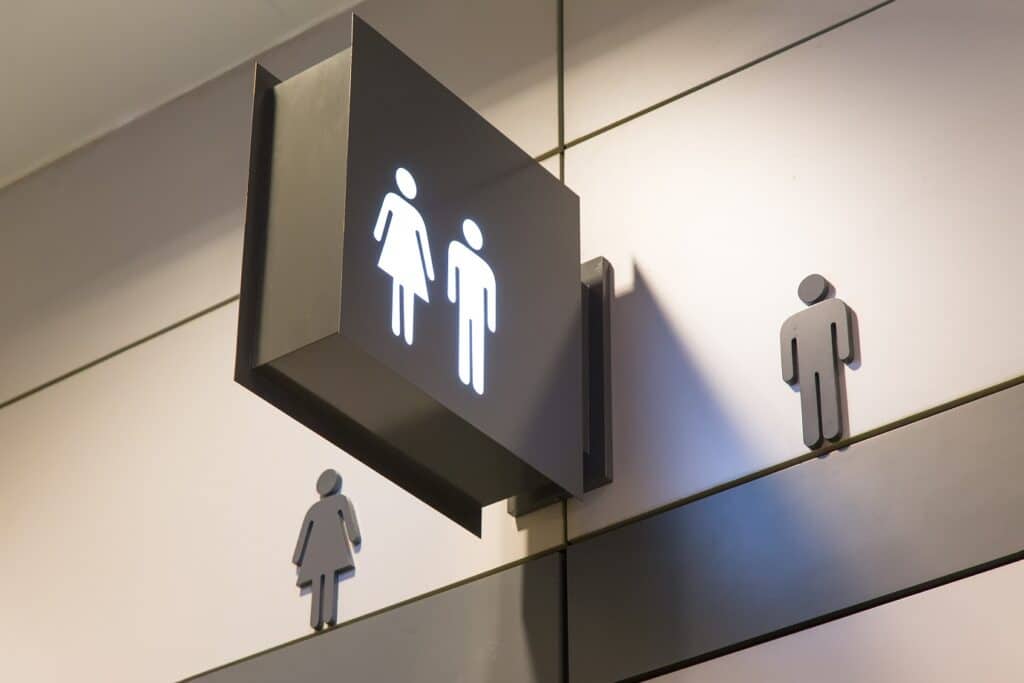One of the most extreme anti-trans bathroom laws in the US was enacted by republican legislators in Kansas on Thursday, which could see even some cis women banned from female public toilets.
Entitled the Women’s Bill of Rights, SB 180 bans trans and intersex women from toilets, changing rooms and prison facilities that align with their gender. It also bans trans women from accessing domestic abuse shelters and rape crisis centres.
Definitions in the bill say that a female is a person who produces “ova”, or eggs– this means cis women who are infertile or unable to produce eggs could be banned as well under legal terms.
The legislation is being widely criticised, with one viral tweet from Australian author Kaz Cooke pointing out that perimenopausal or menopausal women, those taking a contraceptive pill or anyone else that doesn’t ovulate for various reasons will be barred from using women’s public toilets.
Passed by 84 votes to 40 in Kansas state’s House and 28-12 in the Senate, trans advocates say the legislation legally erases trans people by stating that an “individual’s ‘sex’ means an individual’s sex at birth, either male or female”.
The widely criticised law is expected to take effect as soon as 1 July after Kansan lawmakers overturned a previous veto by governor Laura Kelly, who has been openly against the anti-trans legislation.
In a series of tweets, governor Kelly said she’s “disappointed some legislators are eager to force through extremist legislation that will hurt our economy and tarnish our reputation as the Free State”.
Lack of clarity in the anti-trans law could prove dangerous
Those against the new law are saying its vagueness could lead to even more harassment for transgender people, and one of the biggest questions being thrown at Kansas republicans is how they plan to enforce this ruling.
“Are you all going to check the genitals of every trans child who walks into the restroom, or maybe just children in general, so you can figure out who’s a male and who’s a female biologically?” Democratic Kansas state representative Heather Meyer asked Republican lawmakers.
Micah Kubic, the executive director of the American Civil Liberties Union of Kansas, told AP News that the lack of clarity in the Republican’s anti-trans law “is by design because it allows them to disclaim the worst possible interpretation while also allowing for the worst possible outcome to happen”.
One of the Republicans in support of the new law, Kansas House Speaker Dan Hawkins, told his colleagues after the vote that he was “giddy” and the veto override was “truly icing on the cake” among other GOP victories this year— there have been more than 500 anti-trans bills tabled so far in the US in 2023.
Speaking to the personal impact of the new Kansas law, one 20-year-old transgender student at the University of Kansas, Jenna Bellemere told AP News: “When I go out in public, like I’m at a restaurant or up on campus or whatever, and I need to go to the bathroom, there’s definitely going to be a voice in my head that says, ‘Am I going to get harassed for that?”
“It just makes it so much more complicated and risky and unnecessarily difficult.”


